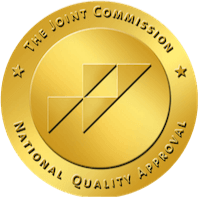
Men in Healthcare: Overcoming Gender Bias in Your Field
A lot of people think that nursing is a field for women. There is bias, and the numbers show this – according to Zippia, 84.1% of traveling nurses are females compared to the 15.9% that are male. The field of healthcare has traditionally been associated with women, with men being underrepresented in various roles. However, in recent years when hospitals need healthcare staffing help, there has been a growing recognition of the importance of gender diversity in healthcare and the need to overcome gender bias. This article explores the challenges faced by men in healthcare and provides strategies to overcome gender bias in the field.
Breaking Stereotypes and Challenging Assumptions
One of the first steps towards overcoming gender bias is breaking stereotypes and challenging assumptions about men in healthcare. It is essential to recognize that men can excel in caregiving roles and bring unique perspectives to patient care. Promoting positive examples of male healthcare professionals and highlighting their contributions can help challenge preconceived notions and encourage more men to pursue careers in healthcare. When some people see a male nurse, they may think that this is someone who couldn’t handle any part of healthcare, which is not true. They may just enjoy the duties that nurses handle. Medical facilities, like hospitals, thrive on the work that nurses do.
Without nurses of either gender, hospitals would be overrun. While doctors are there to diagnose or perform certain surgeries, nurses are the ones that draw blood, change IV bags, check temperatures, and other parts of the daily rhythm of life in a medical setting.
Promoting Inclusive Workplaces
Creating inclusive workplaces is crucial for fostering diversity and combating gender bias. Healthcare organizations should strive to develop policies and practices that promote equal opportunities for both men and women. This includes implementing transparent hiring processes, providing mentorship and support programs, and ensuring that men feel valued and respected in their roles. Additionally, organizations can offer flexible work arrangements to accommodate the diverse needs of all healthcare professionals, regardless of gender.
Ultimately, it’s important that this bias is not only recognized but taken care of before the male nurse loses any confidence. A nurse who doesn’t trust themselves can then lead to real problems for any patients who they help care for. Addressing gender bias in healthcare requires education and awareness at all levels. Healthcare training programs should actively promote gender diversity and challenge bias within their curriculum. By including discussions on gender roles, biases, and stereotypes, future healthcare professionals can develop a more nuanced understanding of these issues and be better equipped to challenge them in their careers. Furthermore, ongoing education and training for current healthcare professionals can help them recognize and address unconscious biases that may influence their decision-making processes.
Overcoming gender bias in healthcare is an ongoing process that requires collective effort. By breaking stereotypes, promoting inclusive workplaces, and fostering education and awareness, men in healthcare can challenge biases and contribute to a more diverse and inclusive field. Let us strive towards a future where all individuals, regardless of gender, can thrive and make meaningful contributions in the field of healthcare. Are you looking for healthcare staffing help? Contact us today to see how we can find people who will fit your needs perfectly.



